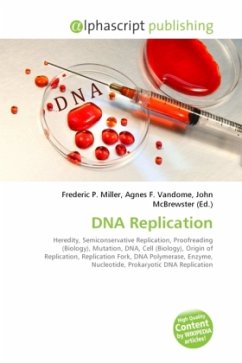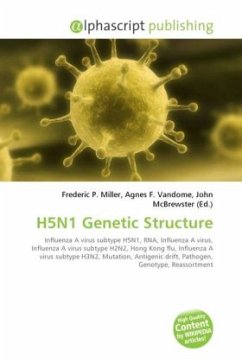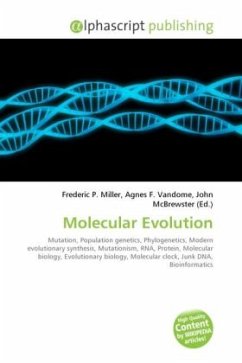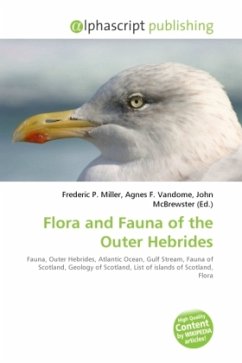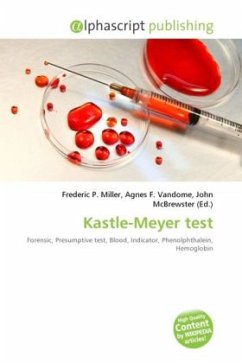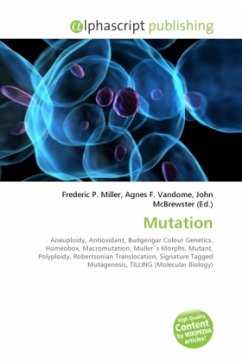
Mutation
Versandkostenfrei!
Versandfertig in 6-10 Tagen
19,99 €
inkl. MwSt.

PAYBACK Punkte
10 °P sammeln!
In biology, a mutation is a randomly derived change to the nucleotide sequence of the genetic material of an organism. Mutations can be caused by copying errors in the genetic material during cell division, or by exposure to mutagens (ultraviolet or ionizing radiation, mutagenic chemicals, or viruses), or can be induced by the organism itself, by cellular processes such as hypermutation. In multicellular organisms with dedicated reproductive cells, mutations can be subdivided into germ line mutations, which can be passed on to descendants through their reproductive cells, and somatic mutations...
In biology, a mutation is a randomly derived change to the nucleotide sequence of the genetic material of an organism. Mutations can be caused by copying errors in the genetic material during cell division, or by exposure to mutagens (ultraviolet or ionizing radiation, mutagenic chemicals, or viruses), or can be induced by the organism itself, by cellular processes such as hypermutation. In multicellular organisms with dedicated reproductive cells, mutations can be subdivided into germ line mutations, which can be passed on to descendants through their reproductive cells, and somatic mutations, which involve cells outside the dedicated reproductive group and which are not usually transmitted to descendants. If the organism can reproduce asexually through mechanisms such as cuttings or budding the distinction can become blurred. For example, plants can sometimes transmit somatic mutations to their descendants asexually or sexually where flower buds develop in somatically mutated parts of plants. A new mutation that was not inherited from either parent is called a de novo mutation.



